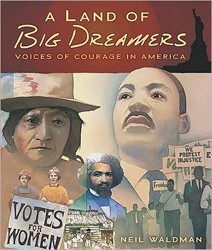By
– November 10, 2011
Based on the true story of the MS St. Louis, Kim Ablon Whitney’s The Other Half of Life presents a heartbreaking tale of people trying to escape Germany before World War II, but unable to find a country to take them in. The fictional SS St. Francis, bound for Cuba, carries a Nazi crew, Jewish and non-Jewish passengers fleeing Germany, and a Nazi officer keeping a watchful eye on everyone. Thomas, the protagonist, is alone on the ship — his Jewish father is in Dachau, and his Christian mother could only afford passage for one. He befriends Priska, who is traveling with her family, and readers follow as first Cuba and then the United States refuse to allow them to enter. The St. Francis is eventually forced to return to Europe, and the passengers must go to whatever countries can be persuaded to accept them. Though Priska’s father tries to convince the authorities to let Thomas disembark in Antwerp with them, he is unsuccessful, and Thomas and Priska part with a promise to meet in five years in Miami. A pair of epilogues describe Thomas’s meeting with Priska’s sister Marianne ten years later, and their trip with their children to the Holocaust Museum in Washington, DC 60 years after that.
Thomas is a likable character, and readers will appreciate the interplay in his conversations with Priska; her optimism and faith make a good counterpoint to Thomas’ darker view of the world. Whitney skillfully portrays the passengers’ horrible situation, as well as the small kindnesses that help make their time on the ship better. However, even fans of chess may find the detailed descriptions of his chess matches and his comparisons of chess and his own situation somewhat overdone. Nonetheless, Whitney presents a well-written story peopled with engaging characters to introduce readers to this lesser-known episode. Readers eager to learn more will be grateful for the historical notes, the chronology of Nazi legislation affecting Jews, and sources of additional information on the SS St. Louis, the Holocaust, ocean liners, and chess. Highly recommended for 14 and up.
Thomas is a likable character, and readers will appreciate the interplay in his conversations with Priska; her optimism and faith make a good counterpoint to Thomas’ darker view of the world. Whitney skillfully portrays the passengers’ horrible situation, as well as the small kindnesses that help make their time on the ship better. However, even fans of chess may find the detailed descriptions of his chess matches and his comparisons of chess and his own situation somewhat overdone. Nonetheless, Whitney presents a well-written story peopled with engaging characters to introduce readers to this lesser-known episode. Readers eager to learn more will be grateful for the historical notes, the chronology of Nazi legislation affecting Jews, and sources of additional information on the SS St. Louis, the Holocaust, ocean liners, and chess. Highly recommended for 14 and up.
Marci Lavine Bloch earned her MLS from the University of Maryland, a BA from the University of Pennsylvania and an MA in English Literature from Fordham University. She has worked in synagogue and day school libraries and is currently finishing her term on the Sydney Taylor Book Award Committee.




